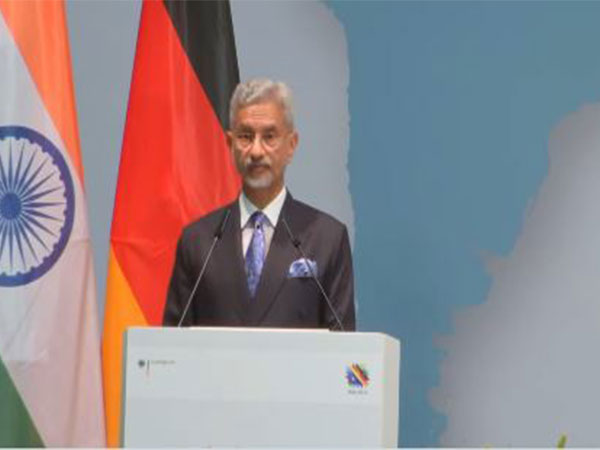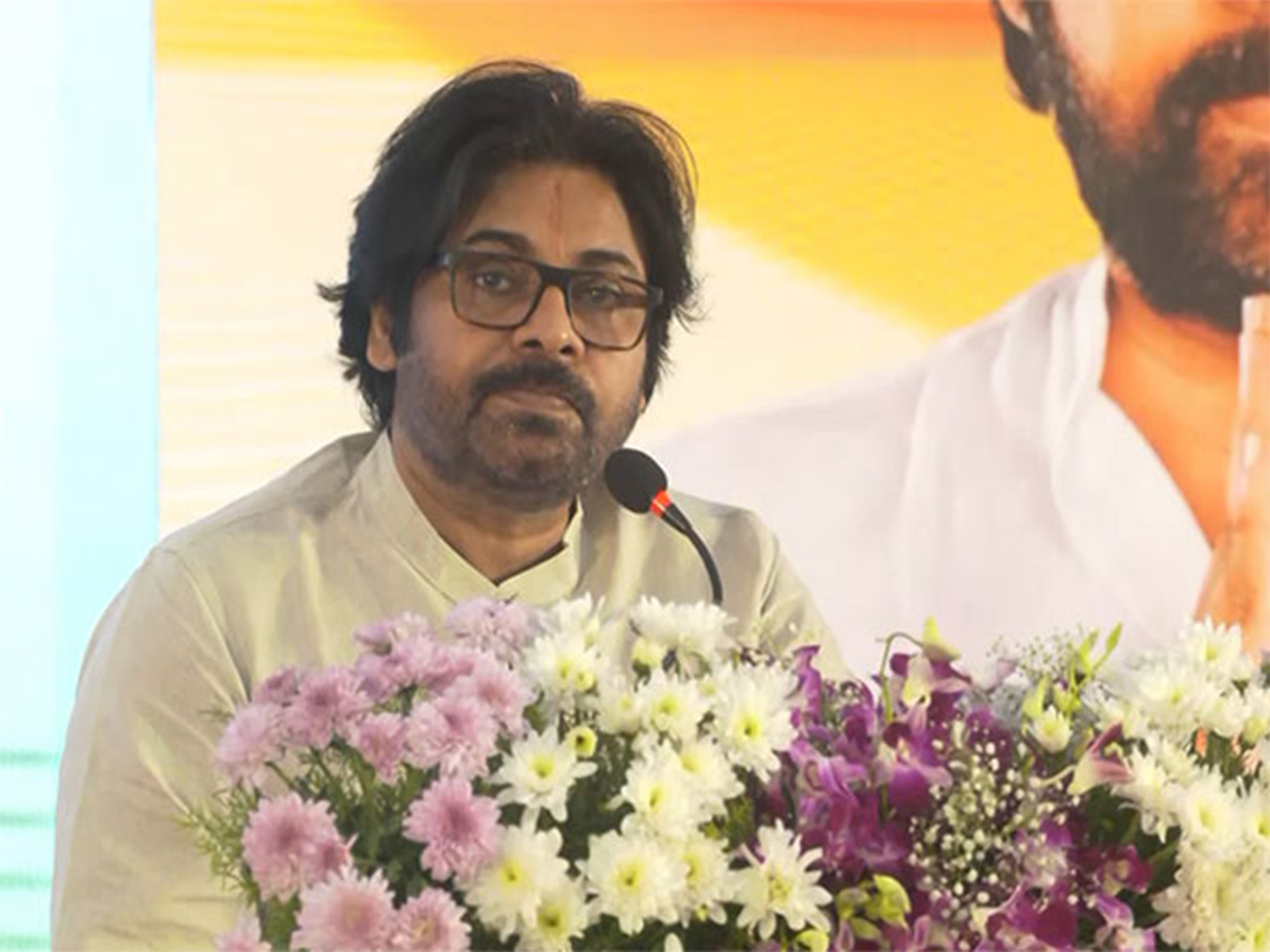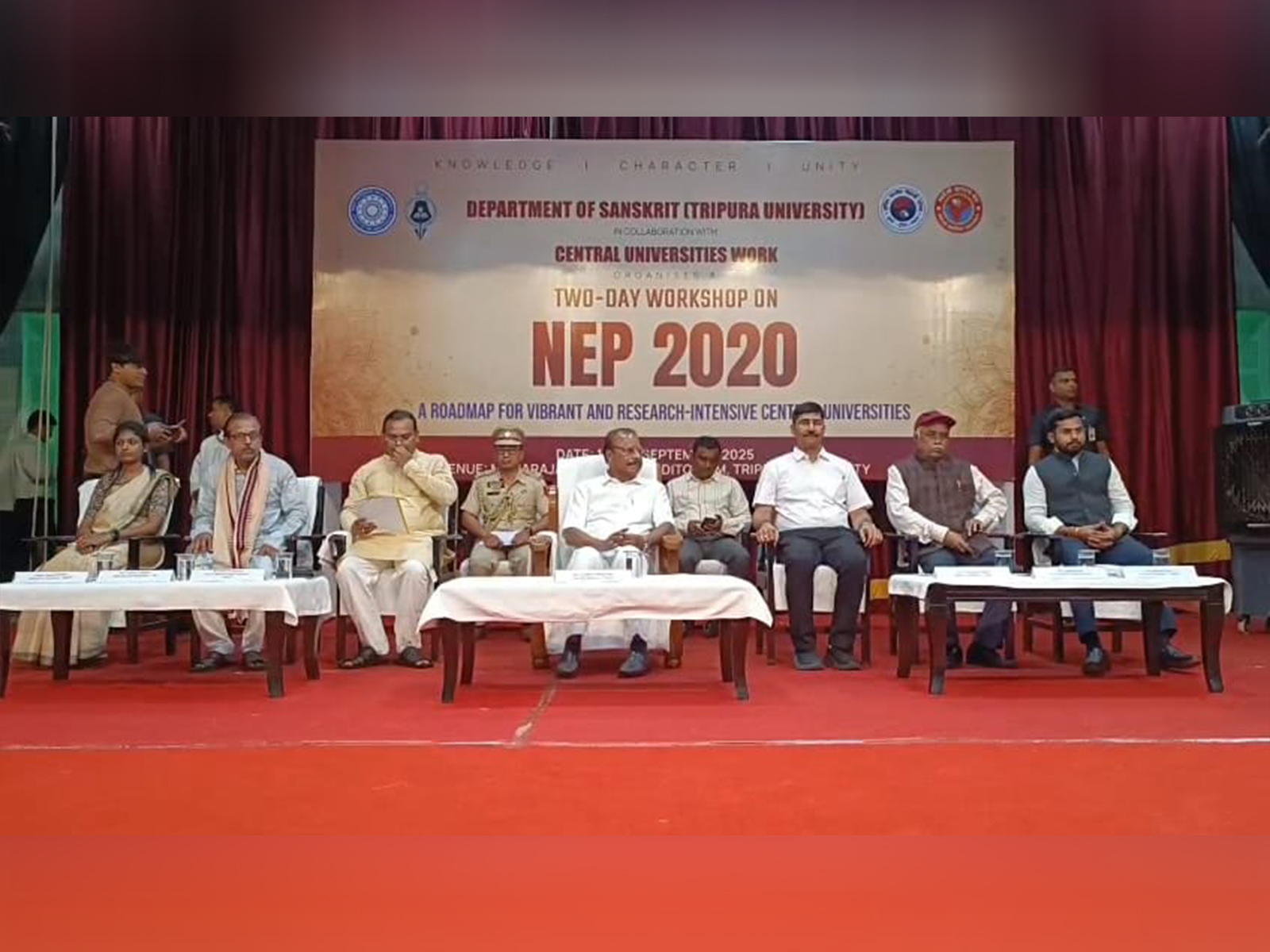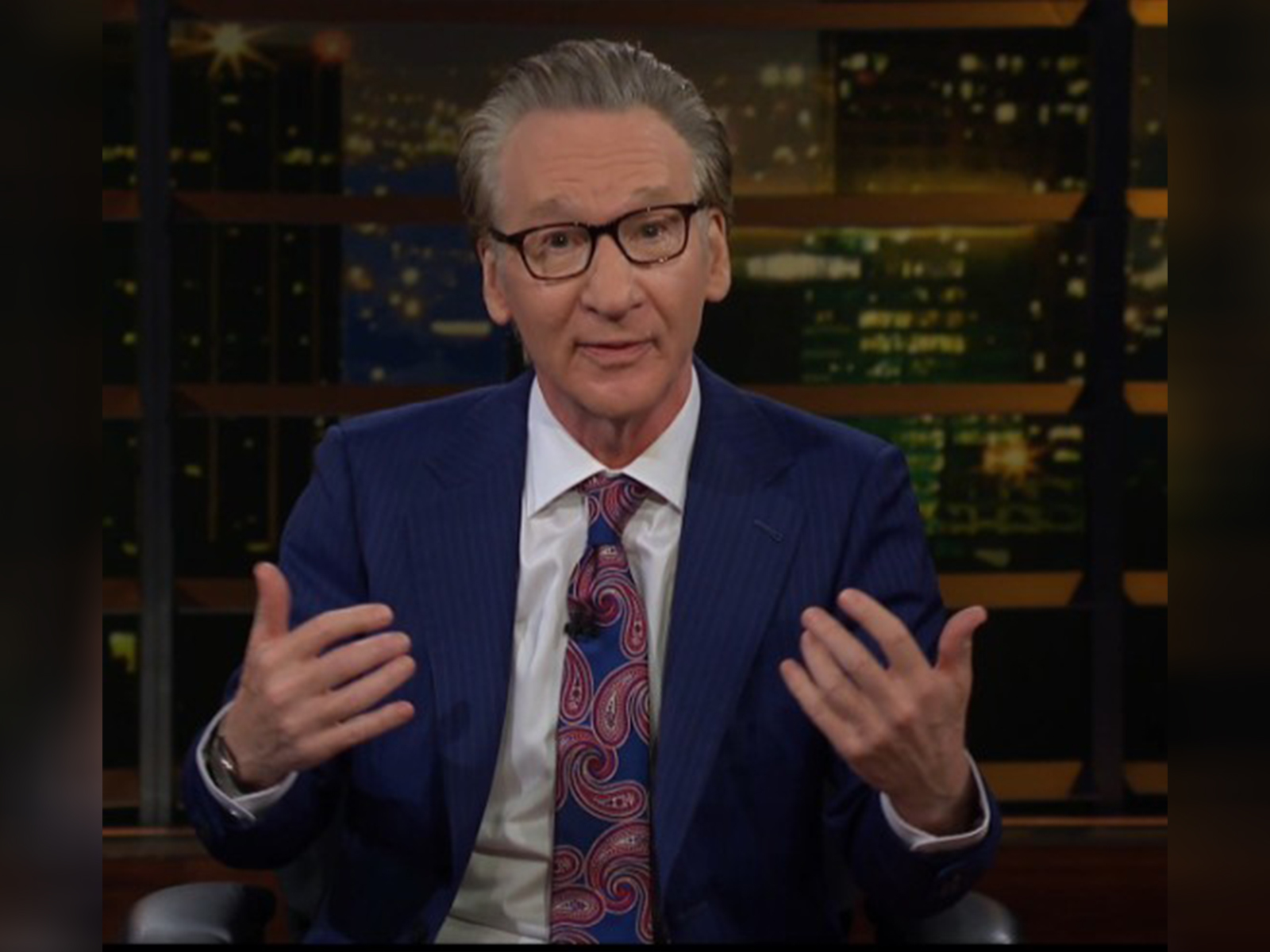Berlin [Germany], September 10 (ANI): Noting that countries with shared values and convergent interests must collaborate in defence and security, External Affairs Minister S Jaishankar on Tuesday said that Germany should take greater interest in the Indo-Pacific just as India seeks to do in the Euro-Atlantic.
Speaking at the Annual Ambassadors’ Conference of German Foreign Office in Berlin, Jaishankar talked of India’s rising capabilities, expanding infrastructure and growing economy and said cooperation between India and Germany contributes to a better world whether it is green and clean energy, sustainable urbanization or new and emerging technologies.
Germany’s Foreign Minister Annalena Baerbock and the country’s ambassador to India Dr Philipp Ackermann were also present.
Jaishankar said there is need to recognize the reality of interdependence and the “limitations of our particular national capabilities”.
“In a globalized existence, instability anywhere has consequences everywhere. It is untenable therefore for major nations to limit their horizons. But to act on that, it is necessary to forge partnerships and understandings. That is best done where there is comfort, where there is confidence and where there is convergence. This is what we are seeking to build between India and Germany, a stronger relationship. And that is why we believe Germany too should take greater interest in the Indo-Pacific, just as we in India seek to do in the Euro-Atlantic,” he said.
Dwelling on the role of foreign policy, he said it matters because global technology, resources and best practices can make a big difference. He also spoke of resilient supply chains.
“When India engages Germany and the EU, this is a key consideration. For partners like you, it could mean both expanding markets and reliable supply chains. But there is the larger picture as well. Whether it is green and clean energy, sustainable urbanization or new and emerging technologies, our cooperation contributes to a better world. As we enter the age of AI, of electric mobility, of green hydrogen, of space and semiconductors, the case for our collaboration only becomes stronger,” he said.
“While doing so, we must also assess our relationship in the context of the state of the world. Whether it is the volatility of pandemics, climate events, conflicts or coercion, there is a growing interest in forging more reliable and resilient supply chains. Similarly, the digital era requires trusted partners and secure data flows,” he added.
Jaishankar said when it comes to international peace and stability, those with shared values and convergent interests must collaborate in defence and security.
“Each of these considerations has a direct relevance to the future growth of our ties,” he said.
Touching some specific points in regard to bilateral ties, Jaishankar said the 7th Inter Governmental Consultations in India is due to take place and will be particularly significant because it will provide directions at a very crucial time on key issues.
“Our trade currently at USD 33 billion and mutual investment levels can surely do better. The changes in India and easier business climate should serve as a motivation. The 18th Asia Pacific Conference of German business (APK 2024) in New Delhi in October is therefore particularly important. Innovation and technology have to be given greater weight in our calculations. We need to think digital, AI, fintech and green technologies,” the minister said.
He said defence cooperation must be given greater thought, especially as the Indian private sector expands in that domain.
“It will require export controls updating as well. We welcome the recent air exercises between India and Germany and await the impending ship visits to Goa. Our Green and Sustainable Development Partnership is making sure and steady progress. We have concluded 38 agreements to the tune of 3.22 billion Euros. It only underlines the potential in this area especially for green hydrogen and green ammonia,” Jaishankar said.
The minister there are 43,000 Indian students studying in Germany and the number has roughly doubled over the last five years.
“But the flow of talent could be very much higher, constituting the kind of living bridge that we have with the US. This could be supplemented by understandings on skills mobility. And most important, because it applies to us foreign ministers, we need close and continuous consultation on global issues. This is necessary to build the levels of trust and confidence which behoves our partnership,” he said.
He said there is no question that the world is undergoing a profound shift, transitioning from the order that was fashioned after 1945.
“This is visible in an economic rebalancing accelerated by globalization. It is reinforced by the accompanying political consequences. There is a basis today for talking about multi-polarity, though this is still a work very much in progress. From India’s perspective, we see the European Union and Germany as one of the key players in this emerging scenario. The strategic awareness that has perhaps grown in recent years in this region is therefore of considerable interest to us,” he said.
Jaishankar said India has changed enormously in the last decade.
“It is today a near 4 trillion dollar economy that has 8% growth prospects for decades further to come. Where the pace of infrastructure growth is reflected in 8 new airports and 1-2 metro systems built annually. Where 28 km of highway and 12 km or railway track are laid daily,” he said.
Jaishankar said India’s embrace of digital technologies is creating a public infrastructure on a massive scale.
“It has enabled in the last decade a housing programme that has benefitted about 170 million, a health coverage of 660 million and loans that are given annually to 58 million small businesses.”
India records the highest digital financial transactions in the world, currently 13 billion each month. It has the third largest startup ecosystem with a 117 unicorns, he said.
The minister said India’s human resources are also being transformed.
“Universities and colleges have virtually doubled in the last ten years. There are more than 1600 Global Capability Centres in India that generate USD 120 billion of business each year. The relevance of Indian talent to the global workplace is visible in so many services and professions. And driving a global interest in concluding mobility agreements. This is now an India of Moon landing and a Mars mission, a prolific manufacturer of vaccines and medicines, increasingly important to the global semiconductor industry and to contract engineering.”
He said Modi Government early in its third term has already embarked on a number of important initiatives.
“We plan to create 12 new industrial zones to boost manufacturing. Accelerating skills development is a major focus. New logistics initiatives target ports, highways and railroads and the aviation industry is set for a major expansion,” he said.
Jaishankar arrived in Germany in the second leg of his three-nation visit (ANI)
Disclaimer: This story is auto-generated from a syndicated feed of ANI; only the image & headline may have been reworked by News Services Division of World News Network Inc Ltd and Palghar News and Pune News and World News
HINDI, MARATHI, GUJARATI, TAMIL, TELUGU, BENGALI, KANNADA, ORIYA, PUNJABI, URDU, MALAYALAM
For more details and packages
















